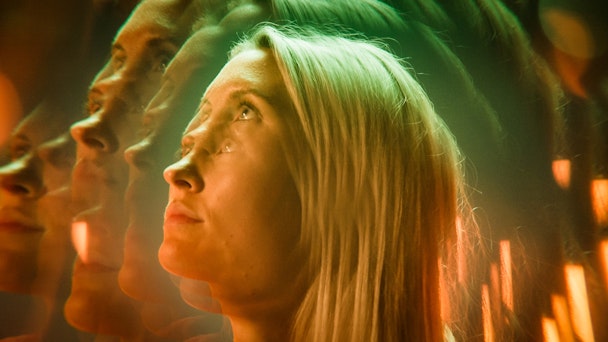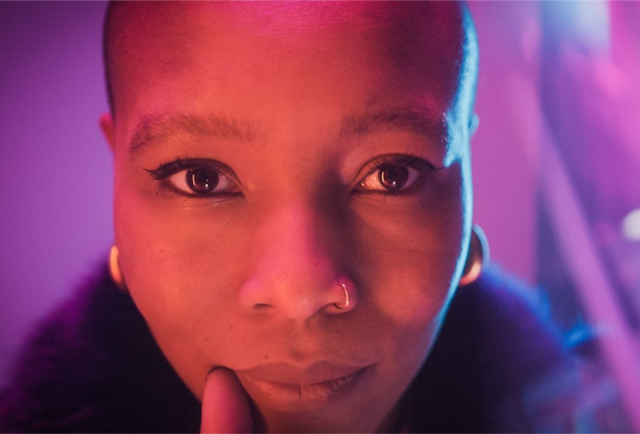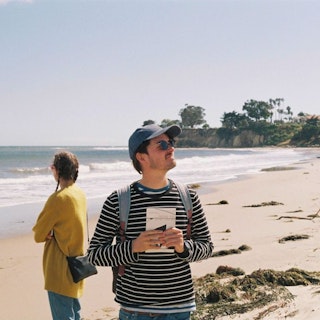According to Amplify, brand building is evolving – into ‘worldbuilding’
In a new documentary series and book, creative agency Amplify points to a convergence between the creative and brand universes – and a new generation of ‘worldbuilders’ straddling the two.

Are brand marketers ‘worldbuilders’ now? / Credit: Amplify
Worldbuilding is not a new concept. It’s what the greats of science fiction and fantasy are praised for when they create something new, rich, and convincing: Tolkien’s Middle Earth; Atwood’s Gilead; and Pratchett’s Discworld.
Now, according to a splashy play from creative agency Amplify, worldbuilding is also what sets apart the best brands. First unveiled in March at the SXSW festival (alongside brands like Pinterest and Lego), the agency launched its ‘worldbuilding’ ethos in earnest this week, with the first film in an eight-part docuseries directed by Bexy Cameron; a glossy companion book; and a launch event in London to be followed by more in LA, Sydney and Paris.
Trailer: Amplify Presents: escape into - the evolution of worldbuilding from weareamplify.com on Vimeo.
The series and book feature interviews with figures working at the intersection of brand building and culture: film production shop Legendary Entertainment’s Ali Mendes; Lego’s global brand director Kris Crockett; Pinterest’s head of brand experiences Judy Lee; and author Liv Little. Alongside the interviews are profiles of scores of worldbuilding ‘pioneers’, from creative director Virgil Abloh to US supreme court justice Ruth Bader Ginsburg and modern multihyphenates like Donald Glover and Ryan Reynolds.
Explore frequently asked questions
The work, Amplify’s founder and chief exec Jonathan Emmins tells The Drum, is not a new positioning for the agency, but more of a cultural campaign and a “passion project” that shows “how we believe marketing is evolving”.
Still, investment has been “substantial” and footed by the agency. Its value will be in convincing brand marketers that Amplify is an agency with deep roots in culture and big ambitions. “I’m a reluctant CEO; I’m a creative at heart, so I’ll always be about the creative,” Emmins says. “There’s a commercial upside, but it’s more of a by-product”.
Advertisement
From brand building to worldbuilding
The work is a part-mission statement, part-product launch, part-cultural criticism, and part-treatise on the modern brand environment.
At its center is the heralding of a paradigm shift – from a two-dimensional, didactic brand world to one that is “fast-moving, 3D and co-authored”.

“As a marketer, so often we think in terms of campaigns and channels when we should be thinking in terms of outcomes and relationships,” says Emmins. But a world-building marketer looks further than the campaign to its place in a world they are creating – asking, he says, “how do you make sure the IP’s a chapter in the brand’s story?” This means understanding that you’re “co-authoring your brands with your audiences” (and becoming comfortable with the loss of control that might require).
Advertisement
Brands as cultural artifacts
The work’s premise is that products and brands can and should be just like a cultural artifact in the worlds they create and the fandoms that populate them – that, as Amplify’s executive creative director Alex Wilson says, “it’s just as easy to take a product and built a world around it” as for a loved media property. Lego, in this telling, shares more with Disney than it does with most toy manufacturers: a consistent world across platforms and properties; avid fans; and both community and storytelling at its center.
Wilson was one of a small team at Amplify who inaugurated the idea, which he says “organically grew” out of the agency’s creative ambitions: “to coexist within the marketing world and the cultural world.”
Wilson goes on: “We’re not a brand experience agency, in the sense of an event agency, anymore. For the last five years or so, we've not been that... We’re a global creative agency that creates work through the lens of experience and culture. We can actively play in any of those spaces, in everything from entertainment to brand and beyond.”
“We see no reason to separate our work from the things we love and are inspired by, that's how we and our clients can strive to make work that truly informs and entertains.”
Suggested newsletters for you
What do brands think?
According to the handful of brand marketers we cornered at the launch event at least, worldbuilding is not a philosophical abstract, but a real approach to tackling a tricky brand environment.
Melody Morton, concepts creative director at Lush, says that “this idea that brand building is now evolving into world building really resonates with us; it’s something we’ve been looking at since just before the pandemic. It’s exactly where we’re at with the Lush brand.” You can see this, she says, in the brand’s recent collabs – like a recent tie-in with The Super Mario Bros Movie, but also in headline-grabbing community-focused initiatives like withdrawing from social media and pulling spend away from big tech.
Morton goes on: “We’re always looking at brand building and building the lush community. We have a fiercely loyal customer base, but we’re always trying to look to evolve them and make sure that we connect with younger generations”.
Meanwhile, for UKTV, BBC Studios’ commercial broadcast arm, world building is a very real goal, says Peter Allison, head of design and brand. In the media space, he says, “the mega brands are creating brand worlds”, “really dialing up their master brand”, and all others must do the same if they’re to compete at a high level. “Historically, we’ve treated our brands separately,” Allison says; but now a more “unified approach”, led by a “flexible but consistent design system” is becoming standard.
“This is where design and execution become so important,” Allison concludes. “You need that flexibility to speak to different audiences in those different communities, but still keep it within that brand world”.
As for Pinterest’s brand experience chief Judy Lee, worldbuilding is not just “a nice framework for a lot of the work I do… bringing the world of Pinterest to life, in real life”. It’s intimately related to the twin values of inspiration and inclusion at the heart of the platform’s brand. “I feel like I belong because I can see myself in the product and the world,” says Lee – or, to look at the obverse, “there’s nothing that feels worse than feeling like you don’t belong in the world”. Building brand worlds collaboratively with audiences just might, she says, increase belonging and decrease its opposite.
Content created with:

Amplify
We solve problems.
At the heart of any problem is a person. A real person. What they think, believe, want or need. We help brands to connect with them and...

